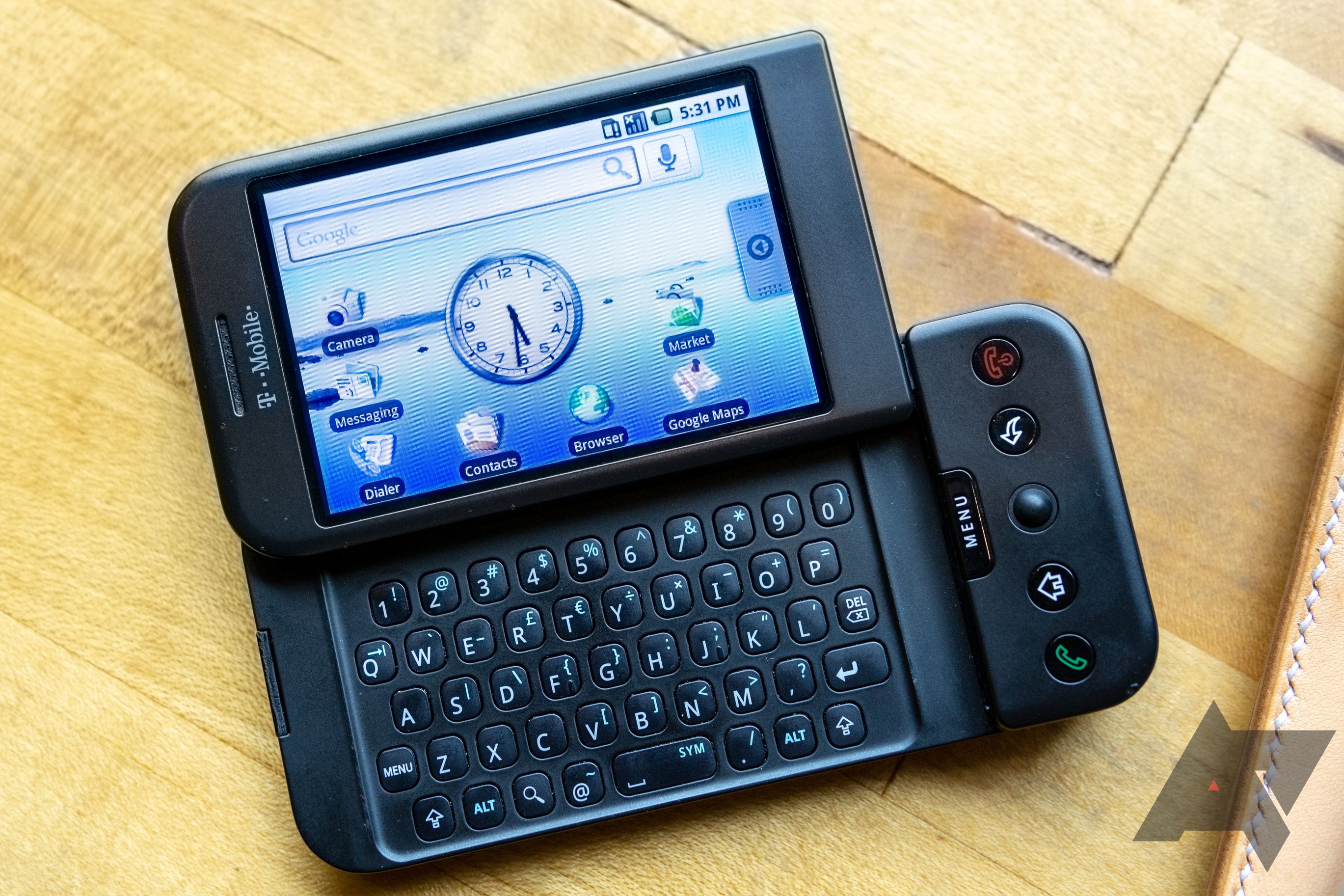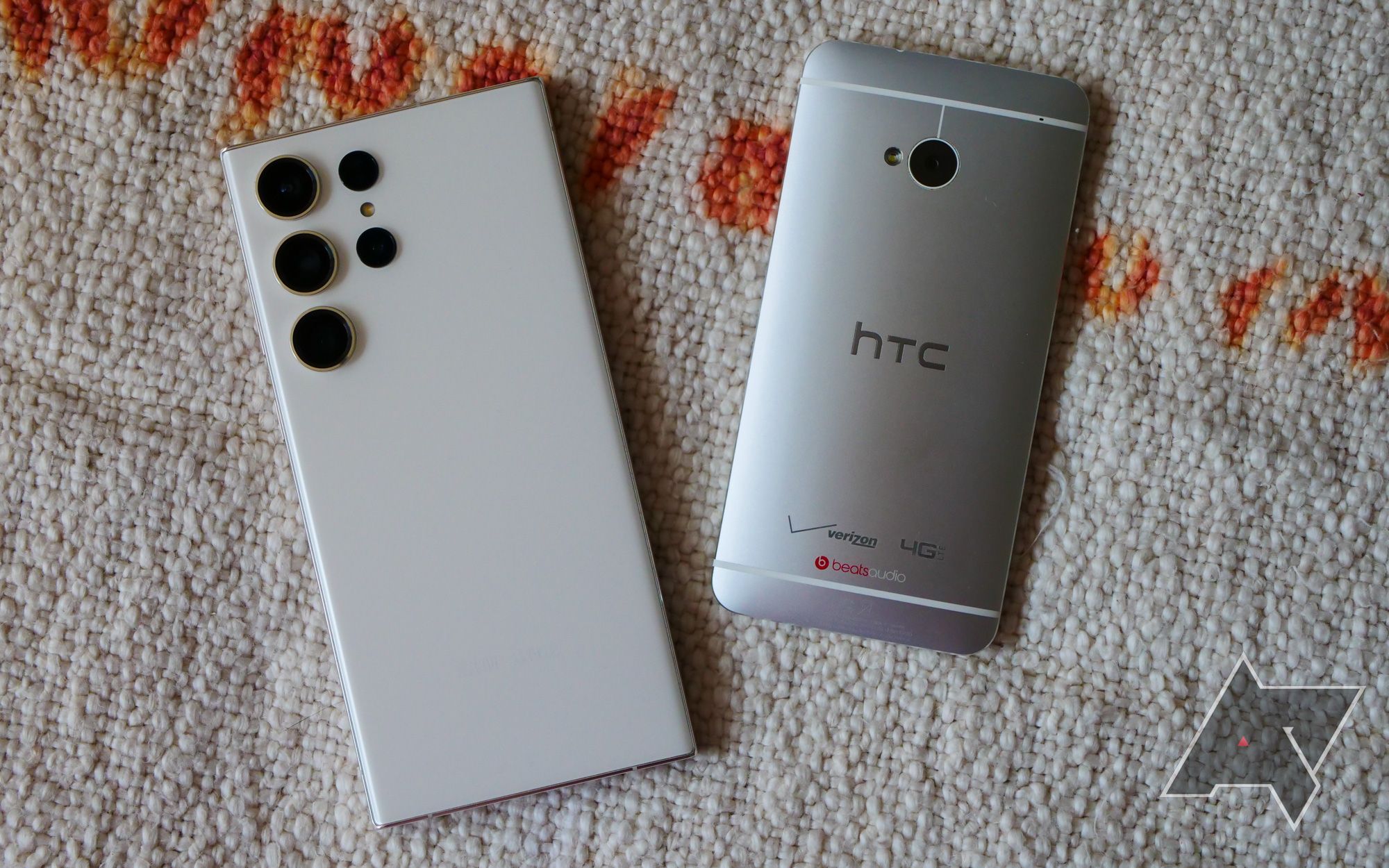Google bought HTC six years ago, and I am still reminiscing about the good old days. The HTC One M8 was the second Android phone I ever owned, and I loved that thing. Those front-firing speakers and that all-metal chassis were a delight in hand. I even enjoyed the Taiwanese company’s take on Android, which they dubbed HTC Sense.
HTC arguably made some of the most iconic Android phones of the mid-2010s: the One series, the Sensation, and even the first Google Nexus was an HTC device. But the one smartphone that set the bar for Android was the HTC One M7. I believe that these devices influenced Android phone design for years. Whatever happened to them?
HTC’s heyday
Among the best on Android
HTC has always been all about technology. The company’s name is High Tech Computer (HTC) Corporation, after all. It started up in the late 90s in Taipei as a Windows laptop maker, but that wasn’t enough. HTC joined a consortium of companies working on developing Android only a few years after its founding. In fact, the company did so much for this consortium that Google offered it the first crack at an Android phone, and history was made.
The HTC Dream (T-Mobile G1 in the USA) was the world’s first Android phone, and it came hot on the heels of the first iPhone. Steve Jobs was infamously angry at Google and HTC for stealing some of Apple’s thunder, but Android had been in development for years, so there wasn’t much he could do about it. Nevertheless, the competition between the two operating systems was on.
2011 saw HTC dominate the US smartphone market ahead of Apple, Samsung, and Blackberry. People loved the HTC Desire, the HTC Droid line, the Evo 4G, and the HTC Sensation. The company won an award in 2011 for best phone design. Then it changed the entire industry in 2012 with the HTC One X, setting the form factor that all phones would use for years.
HTC refined its process the next year with the HTC One M7. I consider this the single best Android phone of that year. I was still rocking a Galaxy SIII, so I didn’t bother picking one up, but I definitely had my eye on it and would play with the display models whenever I passed a cell phone kiosk at the mall. When the HTC One M8 came out the following year, I grabbed it.
That phone was pure premium. My wife was carrying an iPhone 4S and used to make fun of my plastic Samsung, but then I was able to boast smartphone superiority with the M8.
The golden phones
Two phones were the One
The HTC One M7 and One M8 were groundbreaking designs for a smartphone, and there wasn’t anything else on the market that came close. But they didn’t surprise anyone because HTC had earned its spot as a top Android OEM. The HTC Desire undoubtedly helped bring Android to the masses when it was released in 2010. It had a pleasing yet familiar design aesthetic, with a Blackberry-esque form factor. Although the phone didn’t have a physical keyboard, it had a little ball on the chin you could use to move a tiny mouse around the screen. It was a pure joy to use.
The HTC Evo 4G was a direct competitor to the iPhone 4. In fact, the two phones launched within days of each other. But HTC had a next-gen 4G device while the iPhone was still using 3G speeds. It wasn’t cheap, and it sold like hotcakes in developed markets, including the US where it set sales records, and Sprint even ran out of them on the first day.
Alas, the good times were not to last for HTC.
What went wrong?
A limited time on top
HTC should have been the king of Android phones for years, but after the One M8, its market share began to plummet. The iPhone 5s was a big seller in North America. And the iPhone 6 shook up the entire industry. By 2016, HTC had lost over 50 percent of its share price. That’s a massive fall in only two short years.
A lot of people point to HTC’s bizarre marketing for One M9. Do you remember those odd Robert Downey Jr. sketches? If you don’t, that’s okay. They actually had nothing to do with the phone. It was marketing gone wrong. But I think the problems ran deeper.
HTC was taking a scattershot approach to smartphones and releasing dozens of different models every year. Some were hits, like the aforementioned One series. Others were complete misses. Does anyone remember the Facebook Cha Cha? HTC partnered with Facebook to release a Facebook-themed device and called it the Cha Cha. Yes, that was a thing. It bombed. So did the HTC Salsa, HTC Pyramid, and the HTC Desire 620G Slim.
Another problem lay in its insistence on selling only through select carriers. You couldn’t get an HTC Bolt if you were a Verizon customer because it was a Sprint exclusive. Many devices were sold like this, and it hurt HTC’s bottom line, especially when iPhones and Samsungs were everywhere.
And by 2016, the company simply wasn’t innovating anymore. The HTC Sense operating system was lagging far behind what iOS had become. Google had switched to LG as its main partner for Nexus phones but then dropped Nexus completely when it went all-in on the Pixel line. This would spell the end of HTC as a phone maker.
Welcome to Google
The huge $1.1 billion deal
Google purchased HTC’s entire design team and its IP for a measly $1.1 billion in 2017. HTC was circling the drain by then, and Google needed fresh hardware design after divesting itself of Motorola. The first Pixel hadn’t blown anyone’s mind, but it hadn’t flopped, either. It was a conservative approach to phones, and Google was priming for the next one.
The Nexus 2 was a hit, especially the 2 XL “Panda.” Many loved that phone, and it received rave reviews from across the board. But the Nexus 2 had a secret: it had been designed by the HTC team Google purchased.
HTC is still around, albeit a shell of its former self. The company is focused primarily on VR today and makes the HTC Vive headsets. The company still puts out the odd smartphone now and again. The “U” line is an HTC exclusive, but I have never seen one at a store. There’s even the HTC Exodus “cryptophone,” which runs on a blockchain. There were rumors of a VR-centric “metaverse phone” in the works back in 2022, but nothing has come from that.
The legacy lives on
The impact today
HTC had its glory days, but I don’t see them coming back anytime soon. Maybe it’ll partner with Microsoft again for a new Windows phone with Game Pass built in. (I would buy that.)
But the company showed what’s possible with Android and shook the world with its premium consumer-centric designs. HTC devices proved Android was a viable alternative to iOS. Thanks to this disruptive little Taiwanese company, we have premium hardware, comfortable form factors, and the beloved Android operating system. The only thing we’re really missing are front-firing speakers.
Source link




